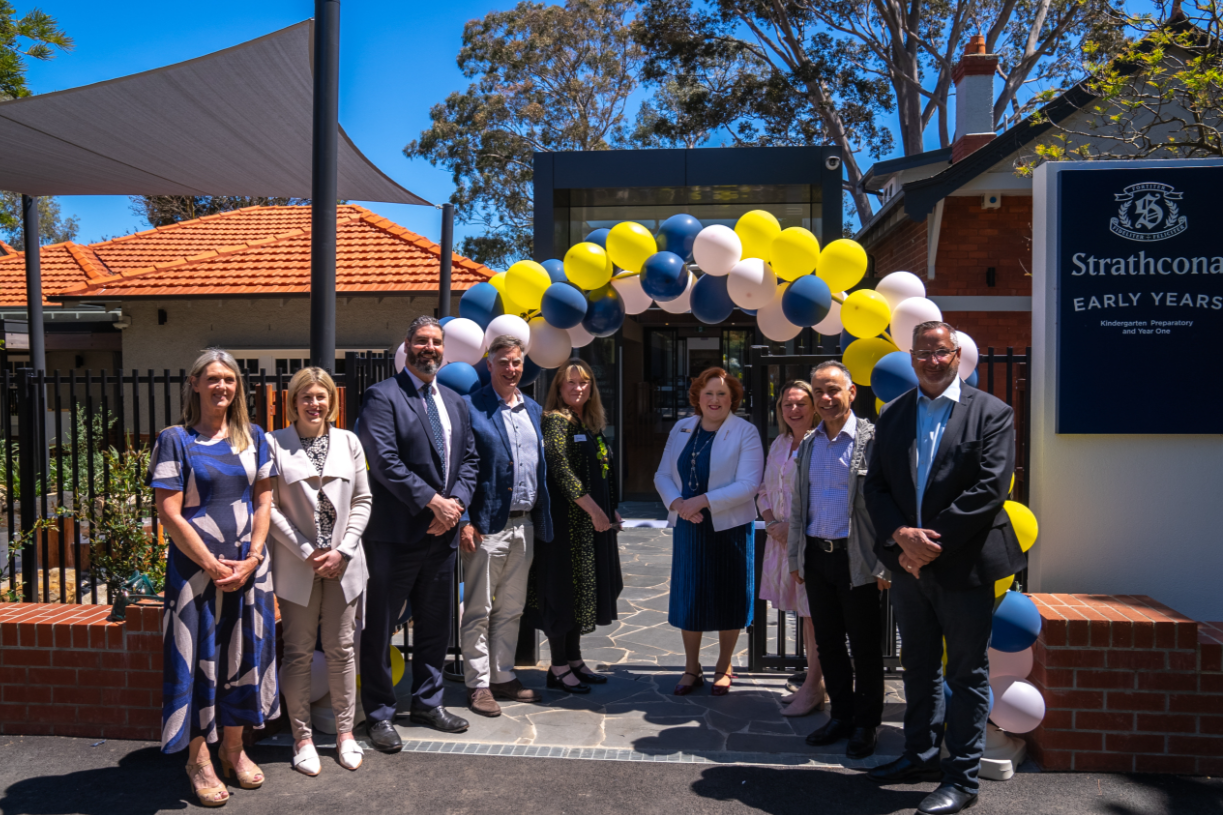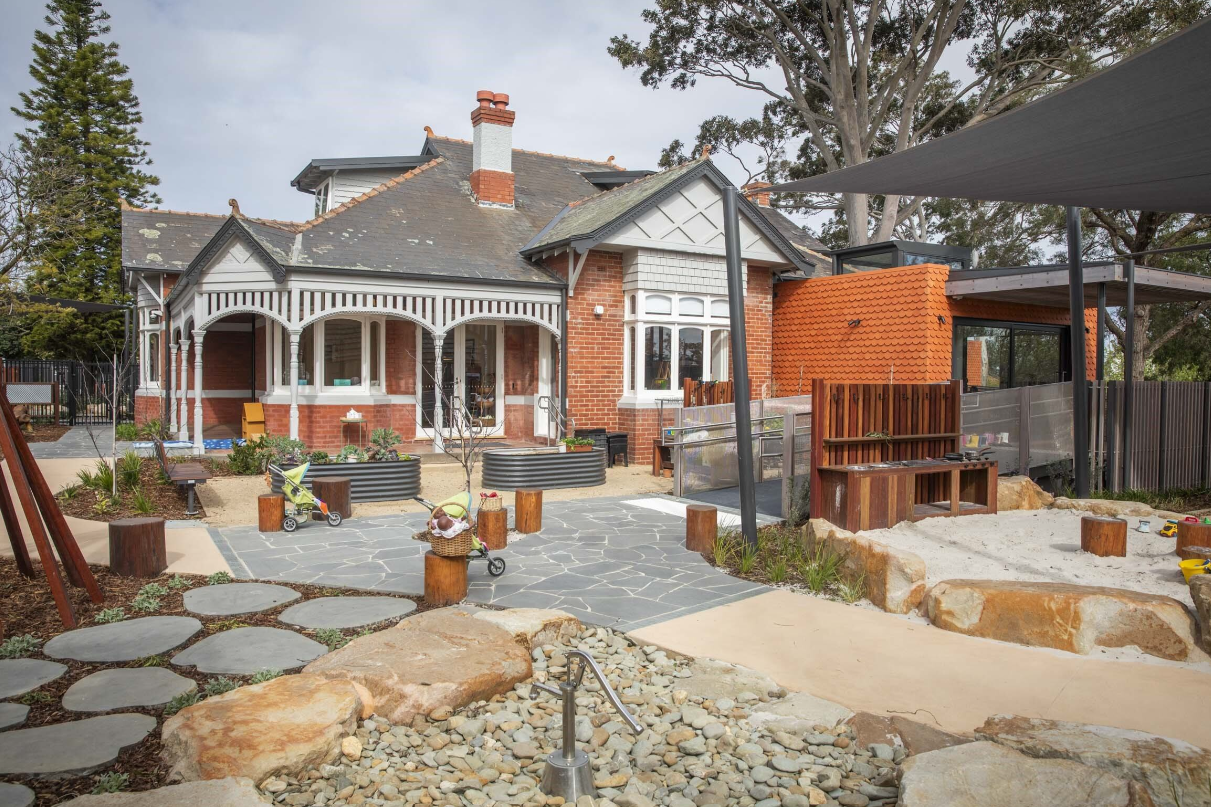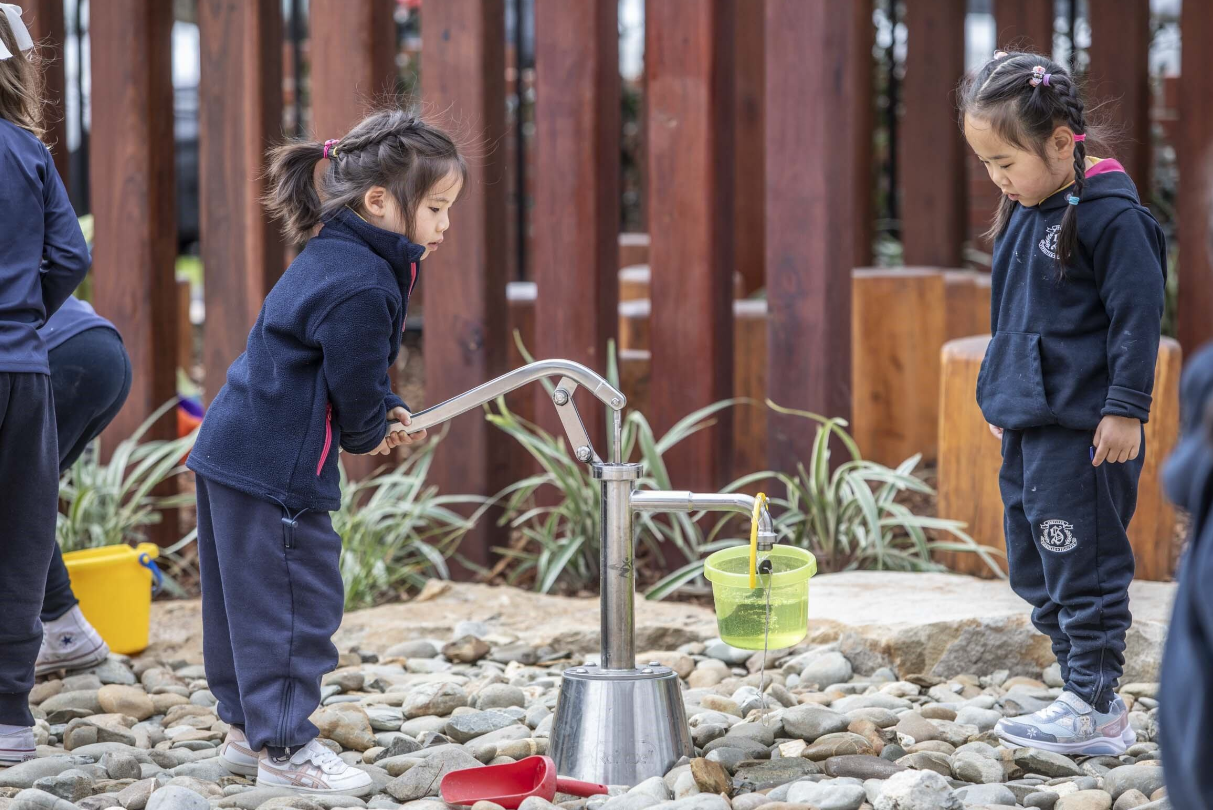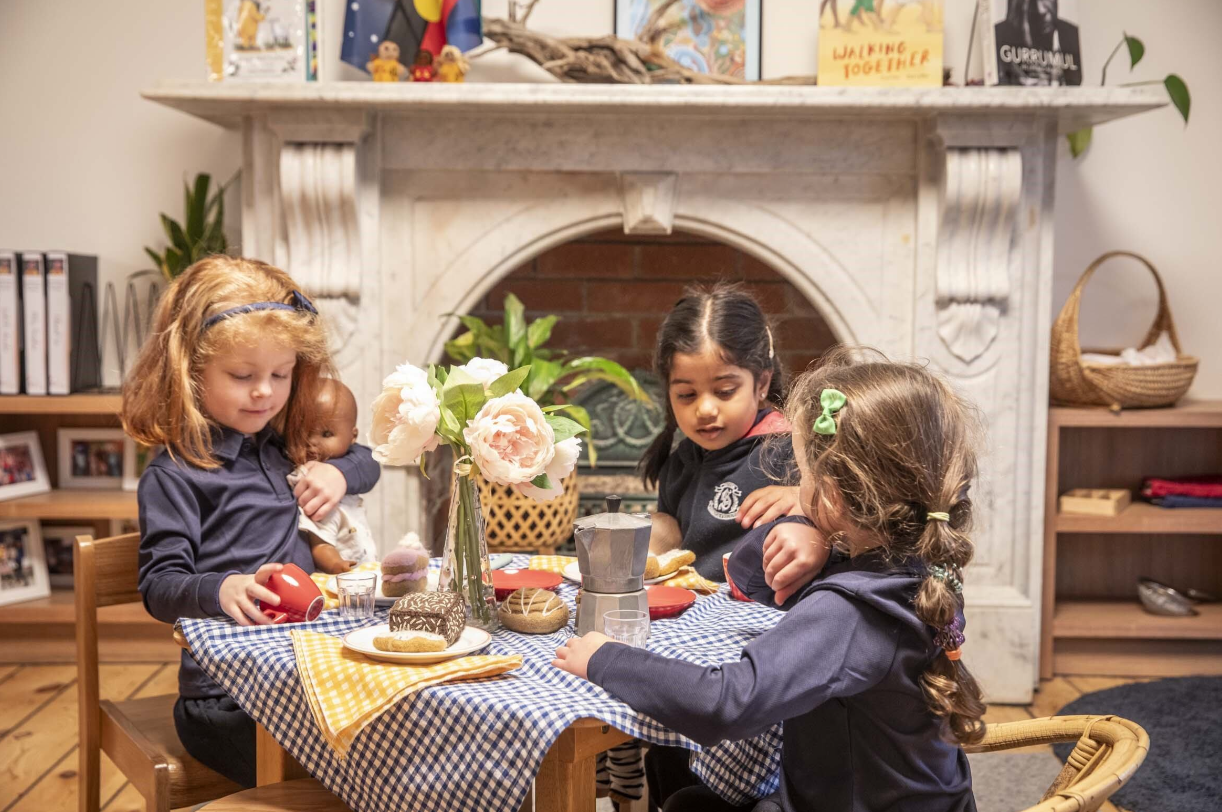
A new purpose-built early learning campus in Melbourne will help students in 3-year-old Kindergarten transition to primary school by aligning play-based exploration with structured literacy and numeracy sessions.
Located in Canterbury Melbourne, Strathcona Girls’ Grammar’s Early Years campus caters to 70 students across three buildings surrounded by an extensive natural play area encompassing an expanded external deck and three playgrounds.
Strathcona’s Principal, Lorna Beegan said the new centre is underpinned by a unique early years education framework called ‘Floresco’, meaning ‘to flourish’.
“This framework is inspired by biophilic design principles that emphasise connection to nature through natural light, fresh air, and sensory-rich elements that foster student wellbeing, engagement and belonging,” Beegan told The Educator.
“Research by biophilic design expert, Dr Fiona Gray, into bio-living design supports the framework by encouraging a connection to nature, sustainability education and the importance of wellbeing. Research into neuroscience-based insights highlights the importance of the early years.”

Beegan said Strathcona’s spaces craft flexible indoor-outdoor environments that seamlessly foster play-based learning with a ‘thinking culture’.
“This cultivates dynamic learning communities that reflect Strathcona’s commitment and research with the University of Melbourne on ‘Wholebeing’,” she said.
Envisioned and researched by Strathcona educators for nearly five years and designed by architect Sally Draper, this vision has created unique learning spaces such as the Tree House Studio and Think Lab, where students develop creativity, critical thinking, innovation skills and ponder upon philosophical questions, Beegan explained.
“An urban parkland has emerged with playscapes designed around more than 28 existing trees,” she said. “The goal is to create a seamless learning experience, blending indoor and outdoor spaces where learning unfolds naturally and organically with the child at the centre.”
‘An unrivalled experience’
Beegan said the new Early Years campus at Strathcona promises an “unrivalled” and “exceptional” educational experience for the early years of learning, marked by a focus on community, connection, and holistic development.
“At its heart is the piazza, a welcoming communal space where students, teachers and parents can naturally interact, fostering a sense of belonging and visibility across year levels,” she said.
“This arrangement enables organic, meaningful connections not bound by rigid, more industrial model school transitions, allowing each student to grow at their own pace within a supportive community.”
Beegan said this environment encourages imagination, greater self-regulation, autonomy and relationship-building, challenging stereotypes and supporting dynamic discovery.
“Communication and developing a sense of agency are key,” she said. “Here girls are empowered to explore robust, non-passive roles, embracing active learning in unrestricted spaces designed to support freedom and curiosity.”

Rethinking early years learning
With Strathcona having become one of a select few schools in Australia to offer a clear pathway from Kindergarten through to Junior school, Beegan says this integrated model has the potential to influence the future of what early childhood education in Australia looks like in the coming years.
“Strathcona’s integrated Kindergarten-to-Junior School pathway challenges educational leaders to see children as children, not merely as participants within an industrial or economic system,” she said.
“Instead of fitting children into pre-existing frameworks, this approach asks how we, as adults, can adapt to meet the developmental needs of children and honour the wealth of research supporting child-centred learning.”

Beegan said Strathcona’s model acknowledges that play-based learning from kindergarten and beyond “embeds essential social and foundational skills in a meaningful, organic way.”
“By integrating early curriculum skills through play, children acquire social and cognitive abilities naturally, reinforcing the idea that play is powerful learning,” she said.
“Strathcona’s campus also serves as a community centre, creating a ‘village’ where children, parents, and staff come together to support each other.”
Beegan said this “tripartite” approach values connection, safety, and a shared sense of worth, offering a secure, welcoming environment and a genuine sense of belonging.
“By offering a cohesive structure, it holds the potential to inspire a more unified and inclusive approach to early education across Australia and those vital years of development.”


